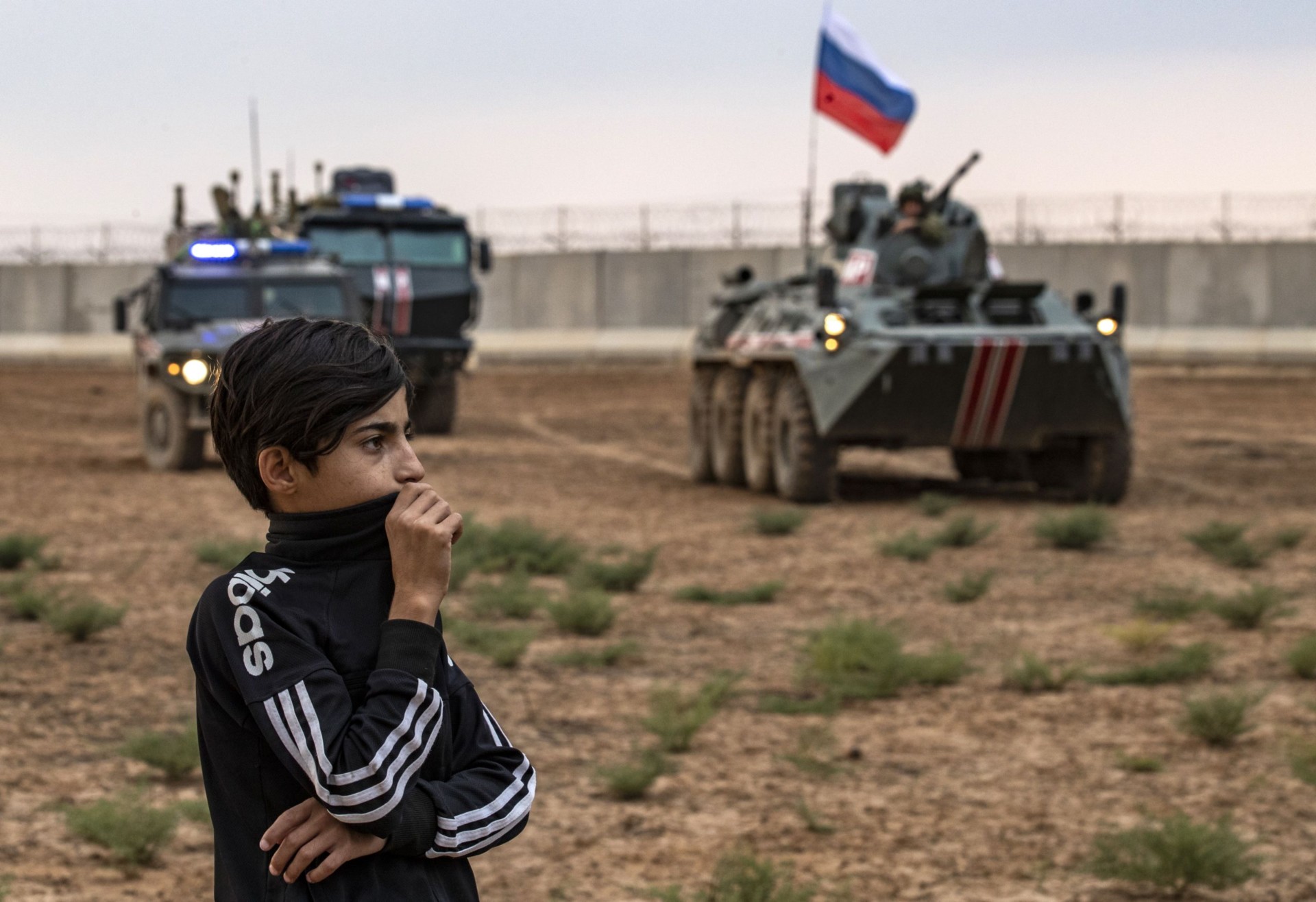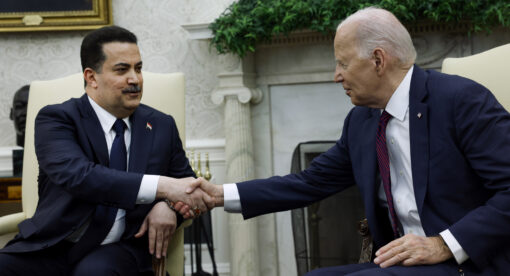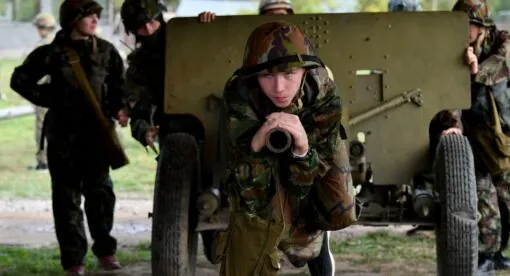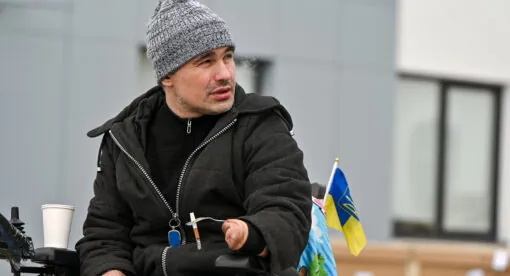Editor’s Note: This insider account was written by a contact in Lebanon who did not wish to be identified for safety reasons. The Newlines Institute will occasionally publish analyses from unnamed but informed sources to protect their identities. The views expressed in this article are those of the author and not an official policy or position of the Newlines Institute.
Russia is in the process of cutting deals with a variety of actors in Syria. The most significant of them is the recent agreement with the Kurds, which is a critical component of restoring the Syrian government’s influence beyond the western half of the country. Moscow has used Washington’s retreat as a way to counter Turkey’s ingress and fill the vacuum left by ISIS. Meanwhile, the Kurds have used both the Americans and Russians to advance their own aspirations of statehood, playing each against the other while not really caring who delivers first.
Since entering the Syrian quagmire back in September 2015, the Russians have proven a willingness to strike deals and share territory with practically everybody, from the United States to Iran to Turkey. This is in sharp contrast with the behavior of each of these three stakeholders, which have insisted on rigid, exclusive spheres of influence. In August, the Russians took their pragmatism a step further, this time hammering out an agreement with Syrian Kurds via their Moscow-based ally Qadri Jamil. These were the same Kurds that the Russians had abandoned twice, first in 2016 and then again in 2018.
The first time, Moscow turned a blind eye to a massive Turkish operation in the Syrian north, it resulted in the occupation of three Syrian towns (Jarablus, al-Azaz, and al-Bab). Russia did it again in 2018. This time allowing Turkey to occupy the city of Afrin, west of the Euphrates River. Afrin residents had been brought to believe that they were untouchable, perched safely within Russia’s sphere of influence. In February 2018, they were proven wrong.
Fresh Deal in Moscow
All of that is now history, as far as Russian policymakers are concerned. On Aug. 31, an agreement was inked in Moscow that recognized Kurdish autonomy east of the Euphrates River. In return, the Syrian Democratic Council (SDC) pledged to merge the Syrian Democratic Forces (SDF) with the Syrian Army. The SDC’s co-chair, Elham Ahmad, stressed that there was no military solution to the Syrian crisis. She called for dialogue and a roadmap for democratic change, words warmly praised by Russian Foreign Minister Sergei Lavrov.
Syrian officialdom was unimpressed with the entire scene. In fact, Damascus was furious with the Kurds for backing out on an October 2019 agreement in Khmeimim. The deal was supposed to have dissolved Kurdish militias and incorporated them with the Syrian Army by last December. That agreement should have led to a Kurdish surrender of all Arab cities and towns under their control to the Syrian Army.
The Kurds wiggled out of that agreement, however, after getting confirmation that U.S. troops were staying in the Syrian north, ostensibly to protect U.S. oil interests. They had only warmed up to the Syrian regime after Turkish President Recep Tayyip Erdogan launched an all-out offensive in 2019 aimed at dismantling their project of statehood and uprooting their fighters from strategic towns like Kobani and Ras al-Ayn. In December 2017, President Bashar al-Assad had called Kurds of the SDF “traitors.” In recent weeks, the Syrian government has been supporting an uprising of Arab tribesmen in the countryside of Deir ez-Zor aimed at challenging Kurdish hegemony over the area.
The View From Damascus
Damascus has to date come out with no condemnation of the Moscow agreement, but neither has the regime embraced it. The only remark, albeit brief, was made by Foreign Minister Walid al-Muallem at a press conference in Damascus with Lavrov on September 7, saying that no deal is acceptable if it “contradicts with the Syrian constitution.” Exactly two years ago, when asked about Kurdish aspirations, Muallem had described them as “negotiable.” Whether the Syrians accept this depends on how much pressure is applied by Moscow, and that, in turn, depends on whether the Russians are serious about their embrace of the Kurds or are simply buying time ahead of the upcoming U.S. presidential elections.
From the Kurdish point of view, they cannot rule out the possibility that a Biden administration may return to the close relationship they enjoyed with Washington and don’t have to be so dependent on the Kremlin. Assuming that that does not happen, the agreement with Russia will likely stand. Therefore the question is: what can it lead to? What triggered both the Kurds and the Kremlin to change colors and accept it? Why is this deal achievable, unlike the one of October 2019, which collapsed by the end of that year?
Syria’s position on the Kurds has fluctuated over the course of the war, ranging from cooperation to outright hostility. In private, however, government officials insist that they have no intention of giving anything to the Kurds, apart from co-administration of their territory with Syrian officialdom. In October 2019, they agreed to the deal reached in Khmeimim, and even promised to advance Kurdish interests in the constitutional committee talks, where the SDF is not represented. But in the talks that kicked off that November, they made no mention of Kurdish rights.
Instead, the Syrian regime claimed that the Kurds had not lived up to their part of the agreement in incorporating the SDF into the Syrian Army. That mistrust is still strong, with an eternal debate on who should start giving in first, the state or the Kurds. The Syrians want the Kurds to start confidence-building measures by surrendering their arms to the Syrian Army, taking down their flag and replacing it with the Syrian one. The Kurds want an official commitment to their self-autonomy, which the Syrians refuse to give.
Making Jamil Useful
By working through a second-tier proxy, the Russians are clearly testing the waters before plunging their Syrian allies into an agreement with the Kurds. Jamil is not a heavyweight in the Syrian opposition, considered a “regime creation” by the opposition and too delinquent by the regime itself. He is being used as a front man for something that could be a game-changer. He happens to be the son-in-law of Kurdish leader Khaled Bakdash, who is the historic leader of the Syrian Communist Party.
That makes Jamil acceptable to both the Kurds and the Russians. He was trained at Moscow State University and has been living in Russia since resigning as Syria’s deputy prime minister for economic affairs in 2013. In 2018, he took part in the Russian-led Sochi Conference and has often repeated that there is no military solution to the nearly decade-long Syrian conflict. He has described the deal reached in Moscow as “a turning point” given that it calls for a “united Syria,” one that is a “democratic state that achieves equal citizenship and social justice.”
But why would the SDF trust Jamil and the Russians? At least twice over the past four years, the Russians have abandoned the Kurds. But they were also twice abandoned by the Americans, who sent shivers down the spine of Kurdish statesmen whenever President Donald Trump announced a sporadic troop withdrawal from Syria. And why would they trust the Syrian government, which has constantly used them as a bargaining chip with Turkey but has never been serious about autonomy?
Between the U.S. and Russia
The answers here are not clear cut, and it is doubtful that the Kurds trust anybody anymore. They are trying to play a complex game of regional politics, pitting the Americans and the Russians against each other, wanting to extract as much support as possible from both to achieve their ends. They don’t really care who ends up securing Kurdish autonomy in the Syrian northeast — whether it’s Damascus and Moscow or Washington. What matters to them is that they are protected from Turkey and secured within their own borders.
The Kurds see Jamil as no more than a pawn for the Russians. They are gladly working through him until a more credible interlocutor is put before them — one with real influence in the Syrian northeast. Many are simply playing for time, hoping for Joe Biden to win the U.S. presidential election. For them, he is the most pro-Kurdish American statesman to enter the White House.
During his two stints as chairman of the Senate Foreign Relations Committee, Biden showed extreme fondness for the Kurds and respect for their political ambitions. During his tenure as vice president under Barack Obama, he visited Iraqi Kurdistan 24 times. It is not clear how Biden would react to a Kurdish-Russian deal in Syria or, if Biden wins, whether such a deal will survive until he reaches the White House. As for their deal with the Syrian state, the Kurds seem to have reasoned that the regime is going nowhere anytime soon and thus are trying to secure a favorable agreement with Damascus, also with their own self-interest in sight.






